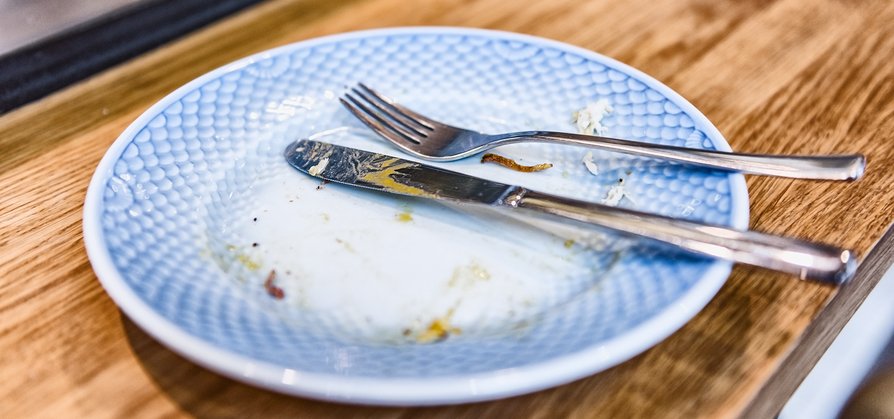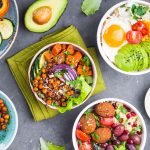Were you taught as a child to always clean your plate? Did your parents reference starving children in Africa, the importance of not being wasteful, or eating every bit of your dinner before being allowed a snack? The end result is that for many people, this concept of eating every last bite stuck into adulthood. But if you’ve always been part of the “clean plate club,” it may be time to break this habit. New research suggests that most people will continue eating even when full until their plate is empty at a cost of many excess calories over time.
The study, which took place at Hofstra University in Hempstead, New York, found that people tend to continue eating after they feel full to achieve a clean plate, especially when there is only a small amount of food left.1 lyuk, Veronika; et al. “Justifying by “healthifying”: When expected satisfaction from consumption closure increases the desire to eat more and biases health perceptions of unhealthy leftovers.” Appetite. February 2019. Accessed 8 December 2018. http://www.sciencedirect.com/science/article/pii/S0195666318309826. These results are based on a series of four experiments that set subjects up in different situations in which they ate, then were left with varying amounts and types of food on their plates to see what they would consume.
When just one food, such as a chocolate-covered almond, cookie, or piece of pizza, remained on the plate in front of a participant, they were considerably more likely to indulge and finish it off than when a lot of food remained. And the foods most commonly gobbled up when a small portion was left available were those highest in fat, sugar, and/or salt.
The fact that the desire existed to finish off the last of the cookies or French fries rather than, say, the last piece of spinach provides evidence that this is not some sort of innate survival mechanism pushing us to get every calorie possible. Instead, it appears to be more about fulfilling a craving to indulge in tempting foods that we might not treat ourselves to all the time—reinforced by a desire to fulfill our parents’ expectations to “clean the plate”.
What’s more, it may not seem like such a big deal to polish off the last bite of cheesecake after a big meal in a restaurant or have the one remaining cupcake at work even though you’re still full from lunch. But there are two inherent problems here. The first is that you shouldn’t want to continue eating, even just a little, once you’re full. The fascinating things is that many of the study volunteers actually justified their consumption by saying that the food they were finishing wasn’t really so unhealthy.
The second issue at hand is that those extra calories might not be terrible if they were a one-time occurrence, but as we know, they’re not. And with fattening foods, the calories can add up quickly. So, one little bite of cheesecake might add 30 calories, one cupcake with frosting might give you 300 calories, and a handful of French fries adds on about 80 calories. If you allow yourself these indulgences a few times a week, it can add an extra 1,600 calories or more at the end of a month.
If this is a familiar scenario for you, there are ways you can leave the clean plate club behind and develop better habits. It helps just to be aware of this phenomenon so you can think about it before reaching for that last slice of pie—even if it’s barely a sliver—and stop yourself before your fork gets raised.
Another good technique is to take brief pauses throughout your meal. Put your cutlery down and just talk to your dinner companion for a few minutes (or read a few pages of your book or complete a section of the crossword if you’re dining solo). This will give your body time to digest a little and send signals when you’ve had enough. Just pay attention to what your body says during these breaks.
And if you know you just can’t resist eating everything on your plate, take less food than is your wont. If you really feel like your membership to the clean plate club may be permanent—thank you Mom and Dad—make your portion sizes smaller and keep working on mastering the art of not finishing every last bit.
References
| ↑1 | lyuk, Veronika; et al. “Justifying by “healthifying”: When expected satisfaction from consumption closure increases the desire to eat more and biases health perceptions of unhealthy leftovers.” Appetite. February 2019. Accessed 8 December 2018. http://www.sciencedirect.com/science/article/pii/S0195666318309826. |
|---|











